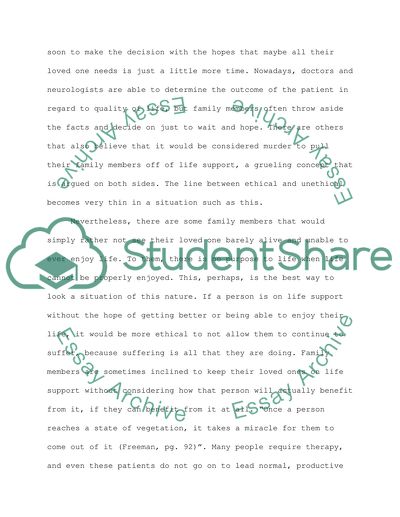Cite this document
(“Should children or spouses withhold life support to loved ones when it Essay”, n.d.)
Retrieved from https://studentshare.org/environmental-studies/1410647-should-children-or-spouses-withhold-life-support
Retrieved from https://studentshare.org/environmental-studies/1410647-should-children-or-spouses-withhold-life-support
(Should Children or Spouses Withhold Life Support to Loved Ones When It Essay)
https://studentshare.org/environmental-studies/1410647-should-children-or-spouses-withhold-life-support.
https://studentshare.org/environmental-studies/1410647-should-children-or-spouses-withhold-life-support.
“Should Children or Spouses Withhold Life Support to Loved Ones When It Essay”, n.d. https://studentshare.org/environmental-studies/1410647-should-children-or-spouses-withhold-life-support.


